Diet For Glowing Skin: 15 Essential Foods And Meal Plan
Taking the right food at the right time can give you the skin you have always dreamt of.
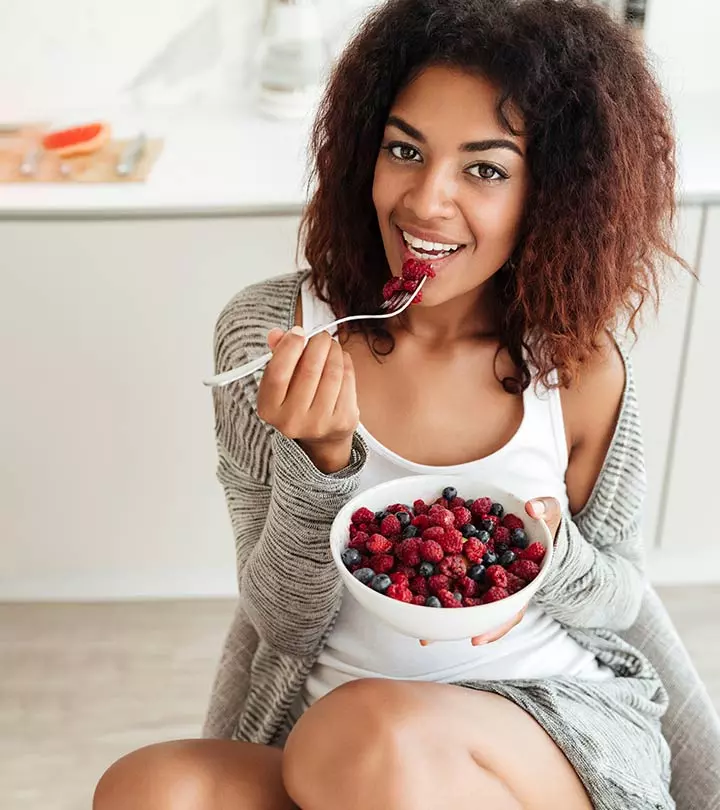
Image: Shutterstock
Pollution, sun, stress, hormones, and unhealthy food can make your skin dull and prone to acne and pigmentation. And you end up spending a ton of money on skincare and makeup products without any sustainable results. This is precisely why you need to be on a skin-friendly diet and consume fruits, veggies, and healthy fats (1). By integrating a variety of nutrient-rich foods, you can enhance your skin’s appearance and get naturally glowing skin that is healthy from the inside. In this article, we give you the best diet plan and a list of foods to eat and avoid that will help you achieve the skin of your dreams. Incorporate it into your lifestyle to get a healthy and natural glow that will outdo any makeup artist’s smart hacks.

In This Article
Diet Plan For Glowing Skin
| MEALS | WHAT TO EAT |
|---|---|
| Early Morning (6:00 a.m.) | 1 cup lukewarm water + juice of half a lime + 4 overnight soaked almonds Or 1 cup water + aloe vera juice + 4 overnight soaked almonds |
| Breakfast (6:45-7:00 a.m.) | 1 wheat bread + 1 cup ricotta cheese/boiled egg+ 1 cup papaya/pomegranate/any seasonal fruits Or 1 cup rolled oats with milk and fresh fruits + 1 cup green tea |
| Mid Morning (9:30-10:00 a.m.) | 1 cucumber/carrot, sliced with yogurt/hummus Or 1 cup freshly-pressed fruit/vegetable juice (unstrained) / coconut water |
| Lunch (12:30 – 1:00 p.m.) | Lettuce wraps with veggies and chicken/mushroom/tofu + 1 cup buttermilk Or Blanched veggies + grilled fish/chicken/ lentil soup + 1 small cup brown rice/quinoa |
| Snack (3:30 – 4:00 p.m.) | 1 cup green tea + 2-3 walnuts Or 1 cup freshly-pressed fruit/vegetable juice (unstrained) |
| Dinner (7:00-7:30 p.m.) | Vegetable/chicken stew + 1 flat whole-wheat bread + 1 cup raita Or Mixed vegetable curry + 2 flat whole-wheat breads + 1 cup raita |
| Bed Time (10:00 p.m.) | 1 cup warm milk/ water + a pinch of turmeric |
Key Takeaways
- Due to unhealthy food intake, your skin can become dull and more prone to acne and pigmentation.
- A glass of water on an empty stomach is a must and never skip breakfast.
- Dark green leafy vegetables, turmeric, aloe vera, and fish all promote naturally healthy-looking skin.
- Sugar and vitamins are rich in fruits such as bananas, mangoes, oranges, apples, and berries.
Takeaways From This Diet Chart
You do not have to stick to this diet chart. You can consume healthy foods that will help repair and rejuvenate your skin. And for that, you have to understand what to include in your diet and what to avoid. Given below are a few tips that will help you do so:
- Drinking water on an empty stomach is a must. You may consume aloe vera juice, turmeric powder, or lime juice.
- Always have breakfast before heading out.
- Include good amounts of fruits, veggies, and protein in every meal.
- Stick to healthy snacking by consuming freshly pressed fruit juice, yogurt, buttermilk, or coconut water.
- Consume foods that are good for your gut and liver.
- Avoid foods that you may be allergic to, such as dairy, seafood, and gluten.
- Get creative by seasoning your food with spices and herbs.
- Keep hydrating yourself by including water, buttermilk, coconut water, and fruit and vegetable juices into your daily diet. Water is a natural detoxifier, so try to drink a minimum of 2.5 liters of water a day (amount may vary based on body weight).
 Quick Tip
Quick TipNow, let us take a look at the list of foods you must consume and how they help improve your skin health.
15 Foods For Naturally Glowing Skin
Here are 15 foods that can help you achieve that naturally radiant skin. These foods are packed with vitamins and antioxidants that support a fresh, vibrant complexion. Dive into these delicious options to nourish your skin and feel fabulous!
1. Water
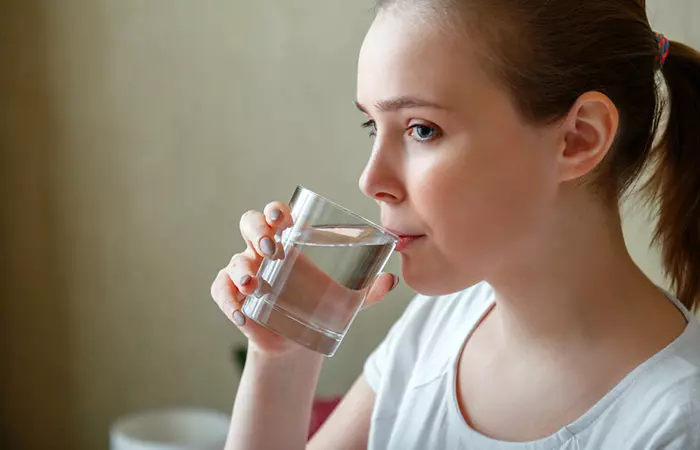
It’s not always about healthy foods for skin glow! Drinking lots of water throughout the day will keep your system internally hydrated, which, in turn, directly reflects on your skin (2). Water not only flushes out the harmful toxins from your system but also keeps wrinkles at bay and gives you naturally glowing skin in 7 days. Keep a bottle of water handy and sip on it whenever you crave for your favorite cola.
2. Dark Green Leafy Vegetables
When it comes to skin health, dark leafy greens take the front seat. They are antioxidant-rich foods, great for healthy and glowing skin. They are loaded with essential vitamins and nutrients for skin health. (3). Dark green leafy vegetables such as spinach, Swiss chard, radish leaves, mustard leaves, lettuce, coriander, parsley, broccoli, and arugula help rid your skin of dullness and enhance its glow. You can add them to salads, soups, sandwiches, wraps, daal, etc.
3. Turmeric
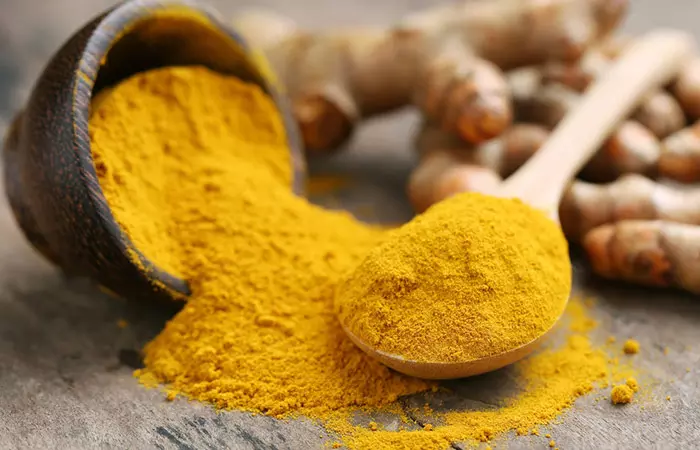
Curcumin is the main phytonutrient responsible for turmeric’s antibacterial, antiviral, anti-inflammatory, and antifungal properties. Turmeric taken orally or used for topical application has overall skin benefits, though further research is required to prove the same (4). You can consume washed and peeled raw turmeric first thing in the morning or while going to bed with a glass of milk. You can also add fresh turmeric to curries, salad dressing, juices, etc.
4. Avocado
Avocado is the perfect superfood for the skin. It is a vitamin E rich food containing healthy fats (5). A cross-sectional study done on Japanese women has revealed that healthy fats – especially saturated and monounsaturated fatsi Healthy fats found in nuts and avocados that helps with the formation and maintenance of cells, and reduces bad cholesterol level. – improve skin elasticity (6). This means that avocados may help slow down skin damage, lock in moisture, and prevent premature wrinkling and dullness. Easy ways to include them in your diet is to add them to your breakfast bowl, sandwiches, salads, dipping sauce, etc.
5. Aloe Vera
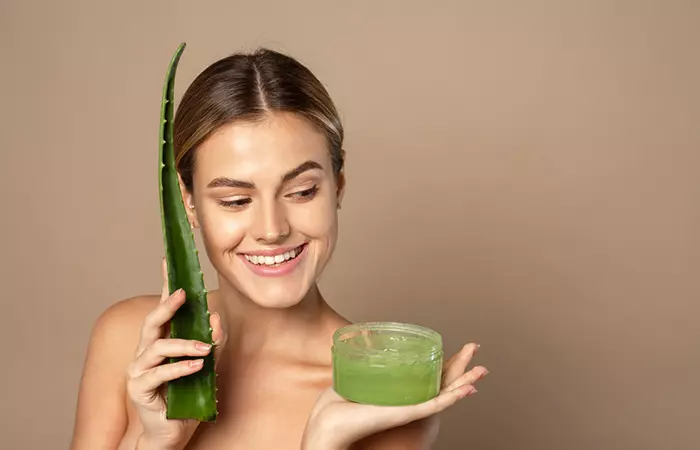
Aloe vera is the most popular home remedy for all skin problems. It contains the hormones auxin and gibberellin that have anti-inflammatory properties (7). Hence, when you apply aloe vera topically or consume its extract in the form of juice or supplements, it helps reduce any kind of inflammation. A study done on rats has found that it can also boost collagen synthesis and heal dermal wounds (8). However, don’t ever consume aloe vera gel directly from a plant.
 Quick Tip
Quick Tip6. Fruits
Fruits are loaded with vitamins and minerals for skin health. These sweet treats keep your hunger pangs at bay, preventing you from consuming sugary junk food that increases inflammation in your body. These fruits are sweet but not too sugary, a perfect treat for a low sugar diet for skin. Hence, by consuming fruits, you will be able to maintain your skin’s health and get the glow that you always wanted. These nutrients are good hydrating foods for the skin. Here are a few fruits that we recommend:
- Mangoes are rich in antioxidants and beta-carotene (a precursor of vitamin A), which is synthesized in the skin. Oral intake of beta-carotene helps reduce UV-induced redness in humans (9). It also said to prevent premature aging, retain the skin’s elasticity, and facilitate the growth of new skin cells, though there is not enough scientific evidence to support these claims.
- Banana is rich in vitamins A, B, and E and prevents premature wrinkling of the skin. It has moisturizing and antioxidant properties (10).
- Papaya has antibacterial properties (11). Thus,it may help in shedding the dead skin cells and clearing your skin of impurities.
- Oranges and kiwis are rich in vitamin C (12), (13). A vitamin C-rich diet for skin delays the onset of wrinkles and boosts collagen synthesis (14) Kiwi is also a powerful antioxidant (15). These collagen-boosting foods are one of the best fruits for your skin. Vitamin C also protects the skin from sun damage and promotes cell turnover, thus preserving the youth and beauty of your skin (14).
- Anecdotal evidence suggests that a glass of warm water with honey and lemon juice can lighten your skin tone and keep it clear.
- Apple helps maintain a toned look and makes your skin look younger, though there is no scientific evidence to prove the same.
- Berries have potent antioxidant properties (16). Anecdotal evidence suggests that consuming them may help you get rid of dark spots and marks quickly. Fruits are the best superfoods for skin and including them in your regular diet can help your skin look better.
7. Carrot

Carrots contain high levels of beta-carotene, vitamin A, and antioxidants. They make your skin healthy from the inside by flushing out toxins. They also have a photoprotective effect. They protect your skin from sun-induced damage and prevent premature aging and wrinkles (17). Sweet potatoes and yams are other options that show similar results.
8. Fish And Fish Oil
You need omega-3 fatty acids for skin! Fish and fish oil are rich in omega-3 fatty acids. They are some of the best foods for acne-free skin providing the skin with a healthy dose of natural oils (good fats) to reduce inflammation, acne, and redness (18). Consume fatty fish like tuna, salmon, and carp or take fish oil supplements to keep your skin healthy and soft. Consume grilled or baked fish. Do not discard the skin. Fish is amongst the best omega-3 fatty acid-rich foods that boost healthy supple skin.
9. Healthy Fats
Healthy fats are the best skin-nourishing foods. The main sources of healthy fats (omega-6 fatty acids) are nuts (almond, walnut, macadamia, etc.), seeds (flaxseed, sunflower seed, chia seed, etc.), healthy oils (olive oil, rice bran oil, etc.), and fish and fish oil, which we have already talked about. Nuts, seeds, and oils are superfoods for skin glow and are great options for vegans and vegetarians to nourish their skin, improve its structure, and heal wounds (19). Include them in your diet in adequate amounts to get flawless skin.
10. Green Tea/Matcha Tea
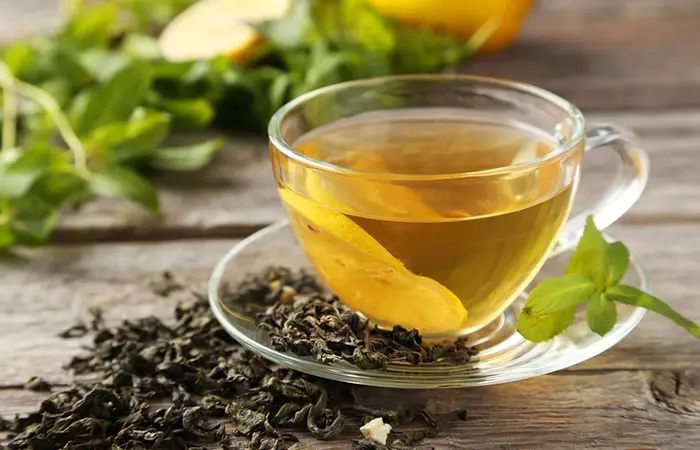
Aanand Geria, a board-certified dermatologist and a Clinical Instructor in Dermatology at Mount Sinai Health System, says, “Green tea contains vitamin E, which promotes new skin cell growth, making the skin softer and giving it a natural glow. It also contains vitamin B2, which helps keep skin firm and youthful. Green tea can be consumed or applied to your skin; both are equally beneficial for glowing skin.” Green tea is a natural source of antioxidants. It is loaded with a potent phytonutrient – epigallocatechin gallate (EGCG). The percent of EGCGi An antioxidant plant compound that reduces inflammation, aids weight loss, and is known for protective effects against heart diseases. is highest in matcha tea and green tea. These antioxidants in tea help scavenge the harmful free radicals, thereby protecting your skin from premature aging, dark spots, and redness (20). Green tea polyphenolsi A category of plant compound believed to boost digestion and brain health and to protect against heart diseases. also prevent acne vulgarisi A form of acne marked by a mix of inflamed and non-inflamed blemishes on the skin commonly called pimples, spots or zits. and lipid synthesis by the sebaceous glandsi Small glands underneath the skin that produce sebum, which is released into hair follicles to provide lubrication for the skin and hair. , leaving your skin healthy and blemish-free (21). You can also consume green tea herbal supplements for skin health.
11. Broccoli
Broccoli is a rich source of antioxidants (22). Antioxidants for skin play an important role when it comes to enhancing skin health. The free oxygen radicals attack the cells and disrupt the normal functioning of the cells and organs. If you follow no meat diet, try a plant-diet for clear skin. This, in turn, can cause hormonal imbalance, weak immunity, gut problems, etc. So, you need a good dose of antioxidants from food, specifically broccoli, as it gives you quicker results compared to other cruciferous veggies.
12. Yogurt
Probiotics for skin health and yogurt and buttermilk contain probiotics that help in digestion, absorption, and excretion (23). When your digestion is smooth, and you have no gut problems, your skin will be less prone to breakouts, dryness, and infections. Consume yogurt every day after lunch, dinner, and in shakes and smoothies.
13. Bottle Gourd
An effective anti-inflammatory food for skin health, bottle Gourd hydrates and protects your skin, thereby giving it a natural glow. It is a plant-based food that hydrates your body with skin-friendly nutrients.The phytonutrientsi Natural compounds usually found in plants that have antioxidant properties and can help protect cells from damage. present in bottle gourd have anti-inflammatory and antioxidant properties (24). Therefore, it may help in getting rid of scars naturally. Bottle gourd juice also improves digestion and reduces constipation (25). Thus, it may lend your skin a natural glow. Consume bottle gourd juice in the morning with other breakfast items. You can also make bottle gourd soup or add it to stews and daals.
14. Bitter Melon
Bitter melon is a healthy skin-friendly food. It tastes bitter but is an amazing natural remedy for skin problems like redness, allergies, scars, and tanning. A study conducted on liver-injured rats has found that, apart from being a good source of antioxidants and have anti-inflammatory properties, bitter melon also keeps your liver and gut-healthy (26). Consume boiled bitter melon or add it to stews. Do not fry or soak it in water for a long duration as it reduces its nutritional value.
15. Red Wine
Red wine is nothing but fermented red grape juice. It has the ability to retain the skin’s original glow and prevent aging. The polyphenols present in it protect the skin from inflammation and sun damage (27). However, consume it in limited quantities as excess alcohol causes dehydration, which might aggravate your skin problems.
These are the foods you need to consume to keep your skin healthy. However, the list isn’t exhaustive and you can check out more foods for healthy skin and try to incorporate them into your diet. Moreover, there are certain other foods you need to avoid. Here’s the list.
Foods To Avoid
- Spicy foods
- Processed and junk foods
- High-sodium and high-sugar foods
- Oily and unhygienic foods
- Foods containing high levels of estrogen
- Foods that increase the internal body temperature
- Overcooked or partially charred foods (kebabs)
Diet For Glowing Skin: Dos & Don’ts
Dos
- Drink plenty of water to keep your skin hydrated and flush out toxins.
- Consume antioxidant-rich foods like berries, citrus fruits, leafy greens, and nuts to combat free radicals.
- Take foods rich in omega-3 fatty acids such as fatty fish, chia seeds, and walnuts to maintain the skin’s natural moisture barrier.
- Consume lean protein sources such as poultry, fish, legumes, and tofu to support collagen production and repair skin tissues.
Don’ts
- Consume sugary foods and beverages in excess as they may cause premature aging.
- Consume dairy products in excess as they can lead to acne.
- Drink excess of caffeinated beverages or alcohol as they can dehydrate the skin and worsen conditions like rosacea or acne.
- Consume too many foods high in salt as they can lead to water retention and skin puffiness.
- Skip your meals. Instead, take regular, balanced meals to avoid blood sugar imbalances that may otherwise impact skin appearance.
Morgan Faith, a lifestyle blogger concurs that a healthy diet is fundamental to healthy skin, but she also stresses the fact that one may not get all the nutrition from food sources alone. “In addition to eating a healthy diet, I also take supplements that are good for my skin. I take a probiotic supplement daily, as gut health is linked to skin health. I also take a collagen supplement, as this helps to keep my skin looking plump and youthful (i),” she says.
Achieving glowing skin is not just about eating the right foods, it also requires making a few lifestyle adjustments. In addition to a healthy diet, incorporating good habits, like regular exercise, sound sleep, proper hydration, healthy stress management, etc. can make a world of difference in how your skin looks and feels.
Infographic: Top Foods You Can Include In Your Diet For Glowing Skin
Healthy and glowing skin is everyone’s dream. However, sometimes you will not see the desired results even after trying all the home remedies and skin care products. You should also maintain a healthy diet and lifestyle to get glowing skin.
There are certain foods you can include in your balanced diet for healthy skin. Check out the infographic to know which are those. Illustration: StyleCraze Design Team
Radiant and healthy skin is a sign of good health. Remember that your eating habits have an impact on your entire health, and your skin is no exception. As a result, to acquire glowing skin, you should eat healthy foods and stick to a fiber-rich diet for healthy skin.Throw out all of your unhealthy eating habits and begin a new way of life. We have put together the best diet plan for glowing skin, as well as a list of things to eat and avoid. Incorporate it into your daily routine to achieve a natural and healthy glow.
Frequently Asked Questions
What drinks make your skin glow?
Aanand Geria says, “You can go for drinks like lemon water and honey, green tea, vegetable juices, and coconut water to achieve glowing skin. Lemons are one of the best vitamin C-rich foods, which helps rejuvenate the skin and maintain healthy skin cells. Honey helps support the removal of excess oil from the skin, which can unclog pores and help fight against acne.”
“Green tea contains catechins that help slow down the process of aging skin. Vegetable juices contain many vitamins for skin health and micronutrients that promote healthy skin. Coconut water helps reduce fine lines and wrinkles on the face. It also hydrates the skin, giving it a natural glow.”
Which vitamin is best for glowing skin?
According to Dr. Geria, “Vitamin D is one of the best vitamins to take for glowing skin. It got the nickname “sunshine vitamin” because it plays a vital role in skin rejuvenation and protection. Other benefits of vitamin D include enhancing the skin’s immune system and helping to destroy free radicals that can cause premature aging.”
Is dark chocolate good for the skin?
Dr. Geria says, “The flavanols in dark chocolate help protect against sun damage and improve blood flow to the skin. Dark chocolate has also been known to help reduce pigmentation and dark spots, leaving the skin healthy and glowing.”
Is coffee good for glowing skin?
According to one study, consuming coffee reduces the darkening of pigmented areas and photoaging effects (1). Additionally, topically applying coffee to your skin can also help reduce the appearance of sunspots, redness, and wrinkles.
Is curd good for glowing skin?
The curd’s lactic acidi A substance made from milk sugars via enzymes and used in skin care to reduce wrinkles and soften skin. helps hydrate the skin, making it soft and smooth. It also makes the skin glow, reduces acne breakouts, lowers inflammation, and aids in tan removal (2).
Illustration: Best Diet Plan and Foods For Naturally Glowing Skin
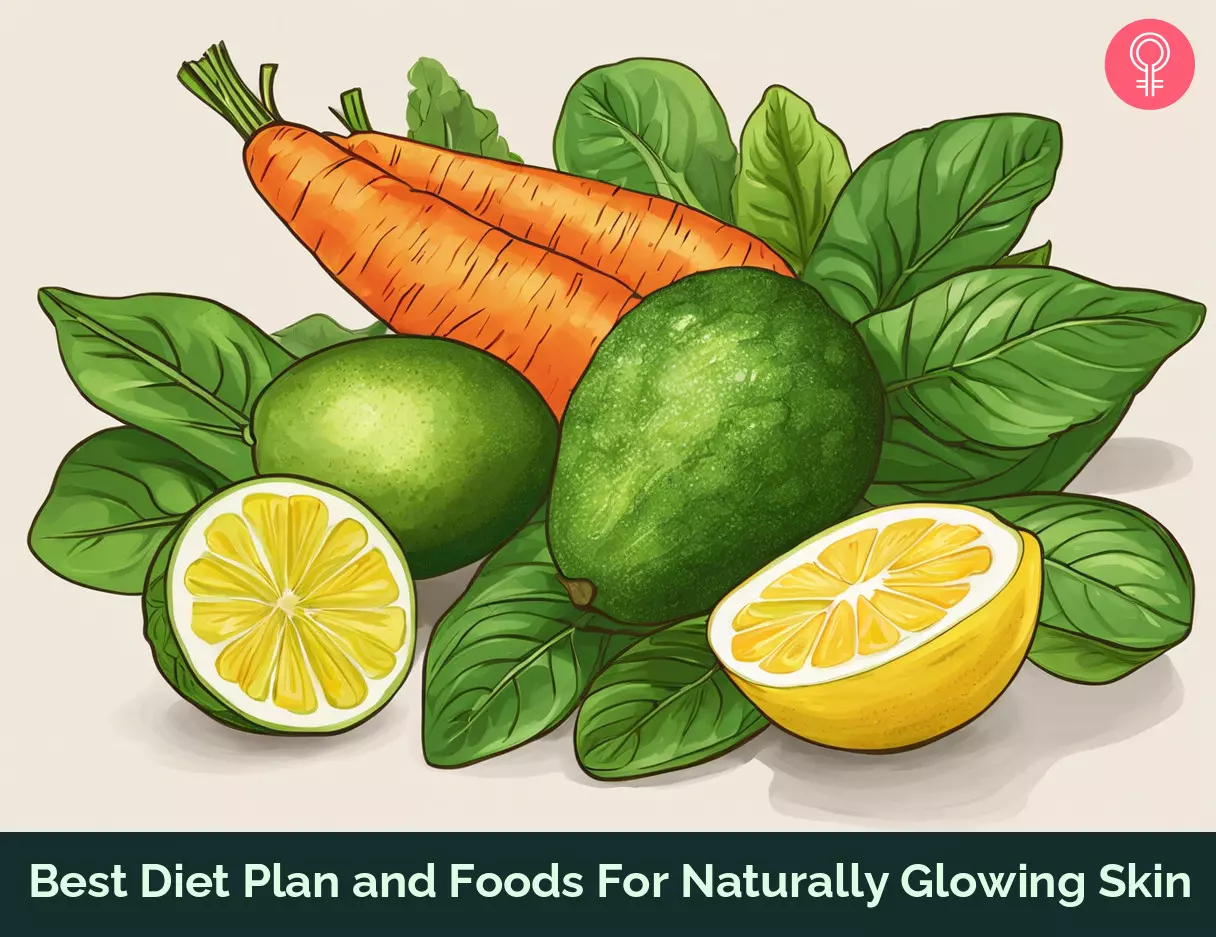
Image: Stable Diffusion/StyleCraze Design Team
Learn how to nourish your skin from the inside out! The video below also discusses what a good diet for healthy skin looks like. Check it out for more information!
Personal Experience: Source
StyleCraze's articles are interwoven with authentic personal narratives that provide depth and resonance to our content. Below are the sources of the personal accounts referenced in this article.
i. 6 Products & Tips I’ve Discovered That Make My Skin Glowhttps://travelandbeauty.medium.com/6-products-tips-ive-discovered-that-make-my-skin-glow-50b37636d2b2
References
Articles on StyleCraze are backed by verified information from peer-reviewed and academic research papers, reputed organizations, research institutions, and medical associations to ensure accuracy and relevance. Read our editorial policy to learn more.
- Skin photoprotection and consumption of coffee and polyphenols in healthy middle-aged Japanese females
https://pubmed.ncbi.nlm.nih.gov/25041334/ - Lactic Acid Bacteria and Lactic Acid for Skin Health and Melanogenesis Inhibition
https://pubmed.ncbi.nlm.nih.gov/31916515/ - Health Benefits of Fruits and Vegetables, Advances in Nutrition, An International Review Journal, U.S. National Library of Medicine, National Institutes of Health.
https://www.ncbi.nlm.nih.gov/pmc/articles/PMC3649719/ - Effects of Turmeric (Curcuma longa) on Skin Health: A Systematic Review of the Clinical Evidence, Phytotherapy Research, U.S. National Library of Medicine, National Institutes of Health.
https://pubmed.ncbi.nlm.nih.gov/27213821/ - Nutritive Value of Avocados, raw, all commercial varieties, U.S. Department of Agriculture.
https://fdc.nal.usda.gov/fdc-app.html#/food-details/171705/nutrients - Association of dietary fat, vegetables and antioxidant micronutrients with skin ageing in Japanese women, The British Journal of Nutrition, U.S. National Library of Medicine, National Institutes of Health.
https://pubmed.ncbi.nlm.nih.gov/20085665/ - Aloe Vera: A Short Review, Indian Journal of Dermatology, U.S. National Library of Medicine, National Institutes of Health.
https://www.ncbi.nlm.nih.gov/pmc/articles/PMC2763764/ - Influence of Aloe vera on collagen characteristics in healing dermal wounds in rats, Molecular and Cellular Biochemistry, U.S. National Library of Medicine, National Institutes of Health.
https://pubmed.ncbi.nlm.nih.gov/9562243/ - Supplementation with beta-carotene or a similar amount of mixed carotenoids protects humans from UV-induced erythema, The Journal of Nutrition, U.S. National Library of Medicine, National Institutes of Health.
https://pubmed.ncbi.nlm.nih.gov/12514275/ - Antioxidant activity and protective effect of banana peel against oxidative hemolysis of human erythrocyte at different stages of ripening, Applied Biochemistry and Biotechnology, U.S. National Library of Medicine, National Institutes of Health.
https://pubmed.ncbi.nlm.nih.gov/21369778/ - Antibacterial effects of Carica papaya fruit on common wound organisms, The West Indian Medical Journal, U.S. National Library of Medicine, National Institutes of Health.
https://pubmed.ncbi.nlm.nih.gov/15040064/ - Nutritive Value of Oranges, raw, navels, U.S. Department of Agriculture.
https://fdc.nal.usda.gov/fdc-app.html#/food-details/169917/nutrients - Nutritive Value of kiwifruit, green, raw, U.S. Department of Agriculture.
https://fdc.nal.usda.gov/fdc-app.html#/food-details/327046/nutrients - The Roles of Vitamin C in Skin Health, Nutrients, U.S. National Library of Medicine, National Institutes of Health.
https://www.ncbi.nlm.nih.gov/pmc/articles/PMC5579659/ - Kiwifruit protects against oxidative DNA damage in human cells and in vitro, Nutrition and Cancer, U.S. National Library of Medicine, National Institutes of Health.
https://pubmed.ncbi.nlm.nih.gov/11588897/ - Bioactive Compounds and Antioxidant Activity in Different Types of Berries, International Journal of Molecular Sciences, U.S. National Library of Medicine, National Institutes of Health.
https://pubmed.ncbi.nlm.nih.gov/26501271/ - The Role of Phytonutrients in Skin Health, Nutrients, U.S. National Library of Medicine, National Institutes of Health.
https://www.ncbi.nlm.nih.gov/pmc/articles/PMC3257702/ - Omega-3 fatty acids: An update emphasizing clinical use, Agro food industry hi-tech, U.S. National Library of Medicine, National Institutes of Health.
https://www.ncbi.nlm.nih.gov/pmc/articles/PMC3890980/ - Wound Healing and Omega-6 Fatty Acids: From Inflammation to Repair, Mediators of Inflammation, U.S. National Library of Medicine, National Institutes of Health.
https://www.ncbi.nlm.nih.gov/pmc/articles/PMC5925018/ - Green tea polyphenols provide photoprotection, increase microcirculation, and modulate skin properties of women, The Journal of Nutrition, U.S. National Library of Medicine, National Institutes of Health.
https://pubmed.ncbi.nlm.nih.gov/21525260/ - Green Tea and Other Tea Polyphenols: Effects on Sebum Production and Acne Vulgaris, Antioxidants, U.S. National Library of Medicine, National Institutes of Health.
https://www.ncbi.nlm.nih.gov/pmc/articles/PMC5384166/ - Potential health benefits of broccoli- a chemico-biological overview, Mini Reviews in Medicinal Chemistry, U.S. National Library of Medicine, National Institutes of Health.
https://pubmed.ncbi.nlm.nih.gov/19519500/ - Should yoghurt cultures be considered probiotic? The British Journal of Nutrition, U.S. National Library of Medicine, National Institutes of Health.
https://pubmed.ncbi.nlm.nih.gov/16022746/ - Phytochemical and pharmacological review of Lagenaria sicereria, Journal of Ayurveda and Integrative Medicine, U.S. National Library of Medicine, National Institutes of Health.
https://www.ncbi.nlm.nih.gov/pmc/articles/PMC3117318/ - The Therapeutic Potential of Medicinal Foods, Advances in Pharmacological and Pharmaceutical Sciences, Hindawi.
https://www.hindawi.com/journals/aps/2014/354264/ - Protective effect of Momordica charantia water extract against liver injury in restraint-stressed mice and the underlying mechanism, Food and Nutrition Research, U.S. National Library of Medicine, National Institutes of Health.
https://www.ncbi.nlm.nih.gov/pmc/articles/PMC5510204/ - Skin photoprotection by natural polyphenols: anti-inflammatory, antioxidant and DNA repair mechanisms, Archives of Dermatogical Research, U.S. National Library of Medicine, National Institutes of Health.
https://pubmed.ncbi.nlm.nih.gov/19898857/
Read full bio of Temple Stewart
- Dr. Aanand Geria, MD, FAAD, is a board-certified dermatologist with over 12 years of experience. He specializes in medical, surgical, and cosmetic dermatology and he founded Geria Dermatology in Rutherford, NJ, with the mission to provide the highest level of dermatologic treatment using innovative technology and evidence-based practice in a customized and compassionate environment.
 Dr. Aanand Geria, MD, FAAD, is a board-certified dermatologist with over 12 years of experience. He specializes in medical, surgical, and cosmetic dermatology and he founded Geria Dermatology in Rutherford, NJ, with the mission to provide the highest level of dermatologic treatment using innovative technology and evidence-based practice in a customized and compassionate environment.
Dr. Aanand Geria, MD, FAAD, is a board-certified dermatologist with over 12 years of experience. He specializes in medical, surgical, and cosmetic dermatology and he founded Geria Dermatology in Rutherford, NJ, with the mission to provide the highest level of dermatologic treatment using innovative technology and evidence-based practice in a customized and compassionate environment.
Read full bio of Jyotsana Rao
Read full bio of Eshna Das
Read full bio of Monomita Chakraborty





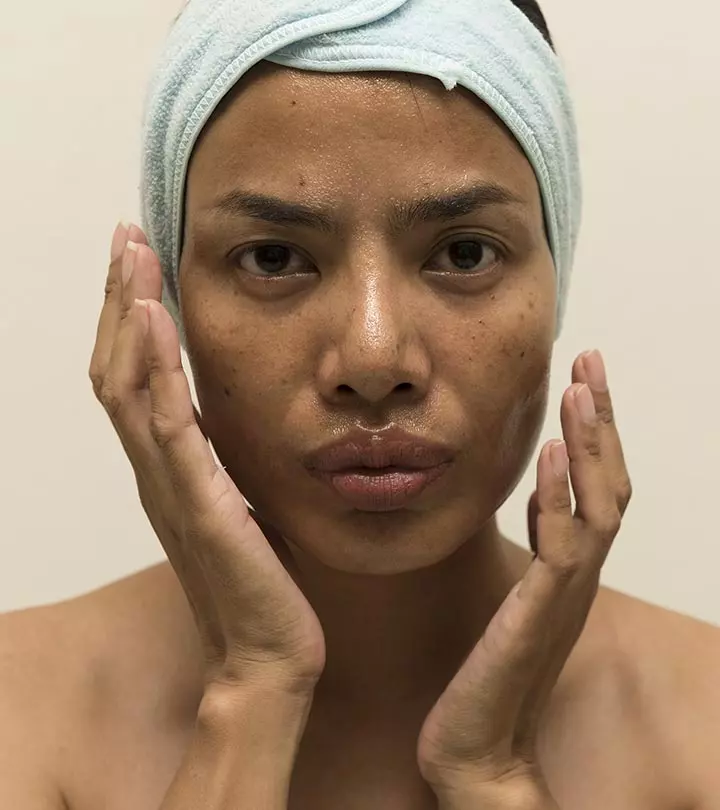
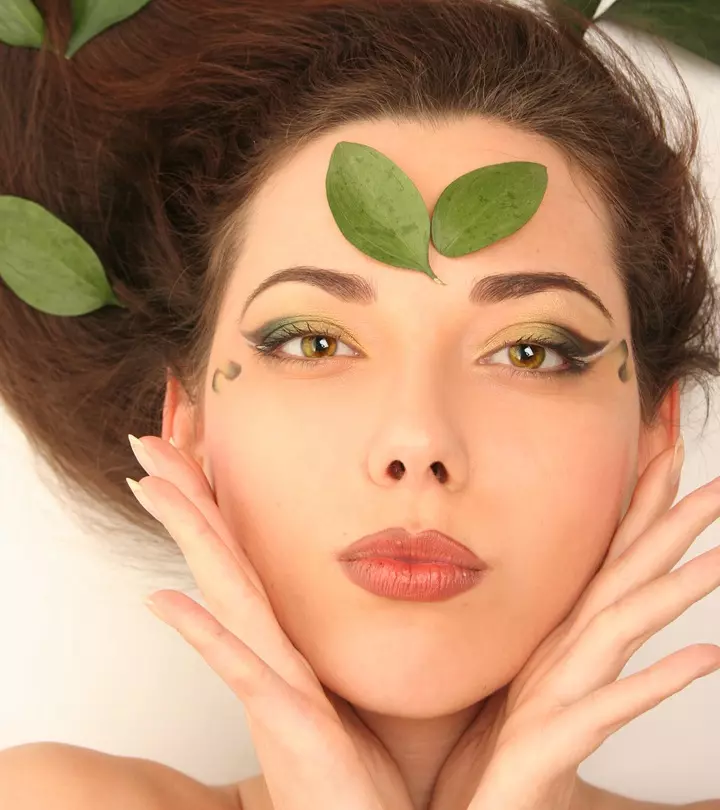
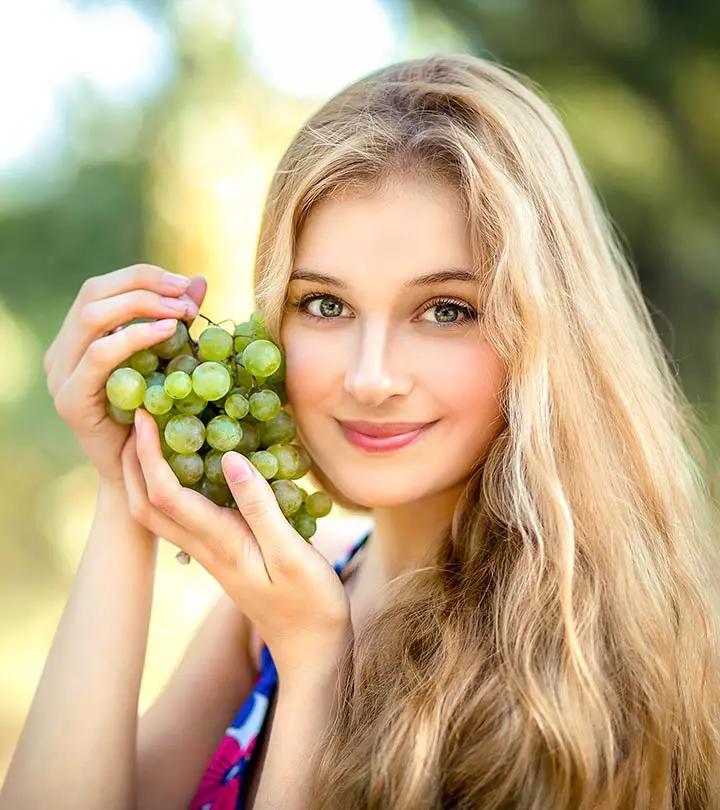

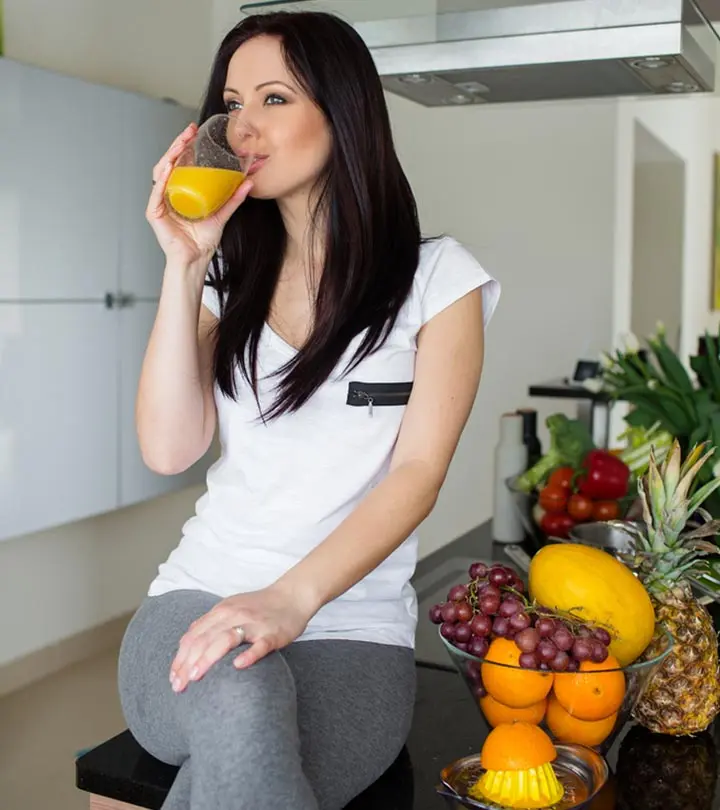
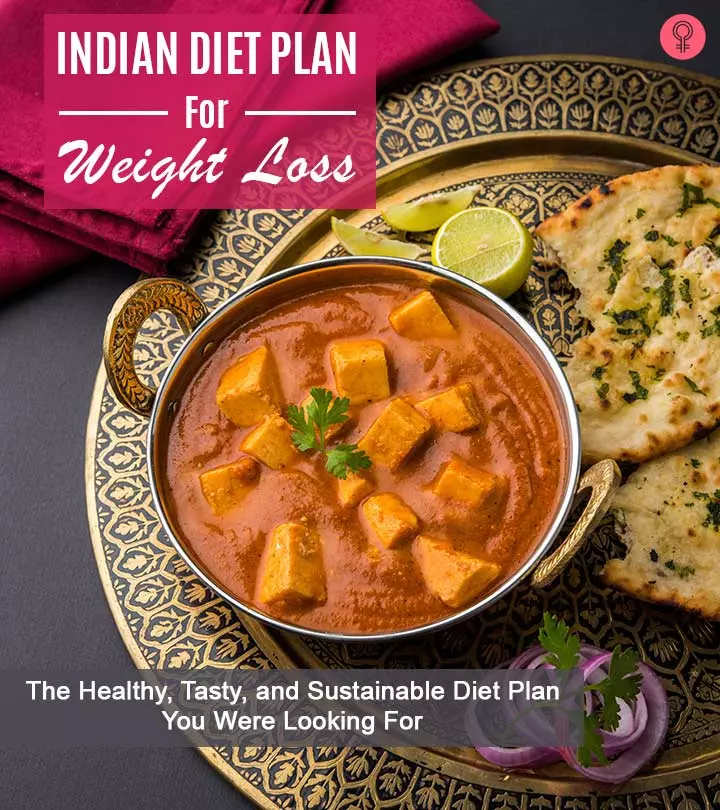


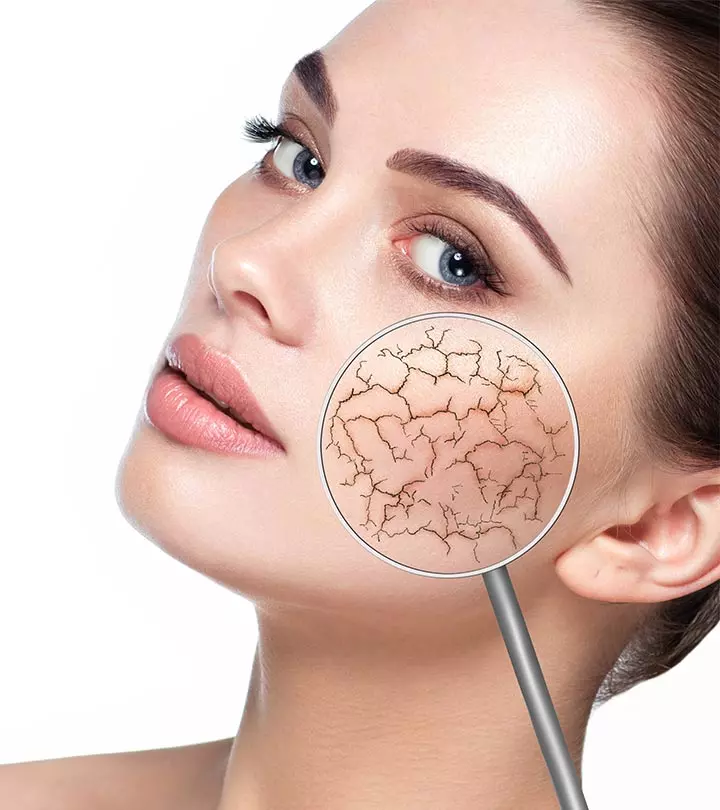



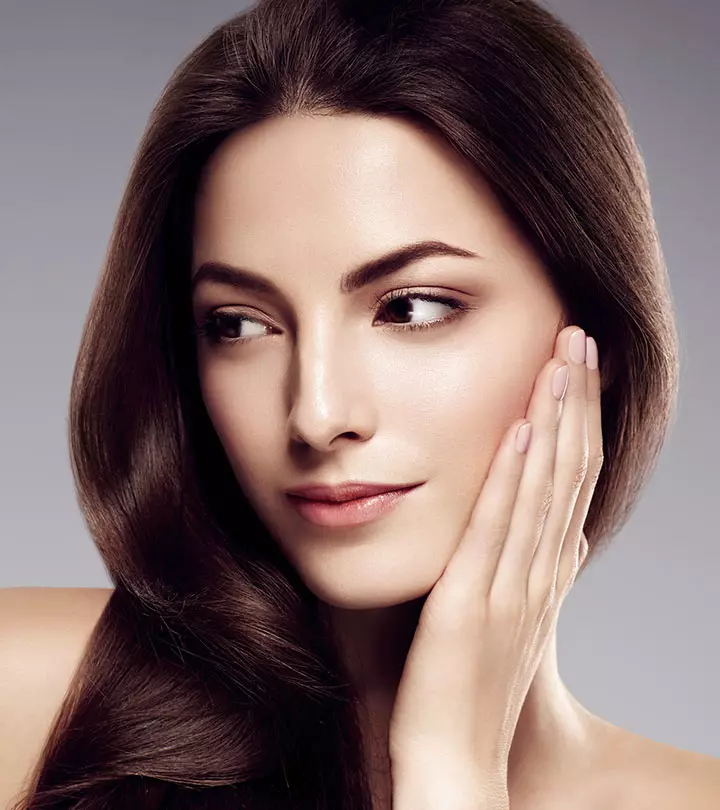
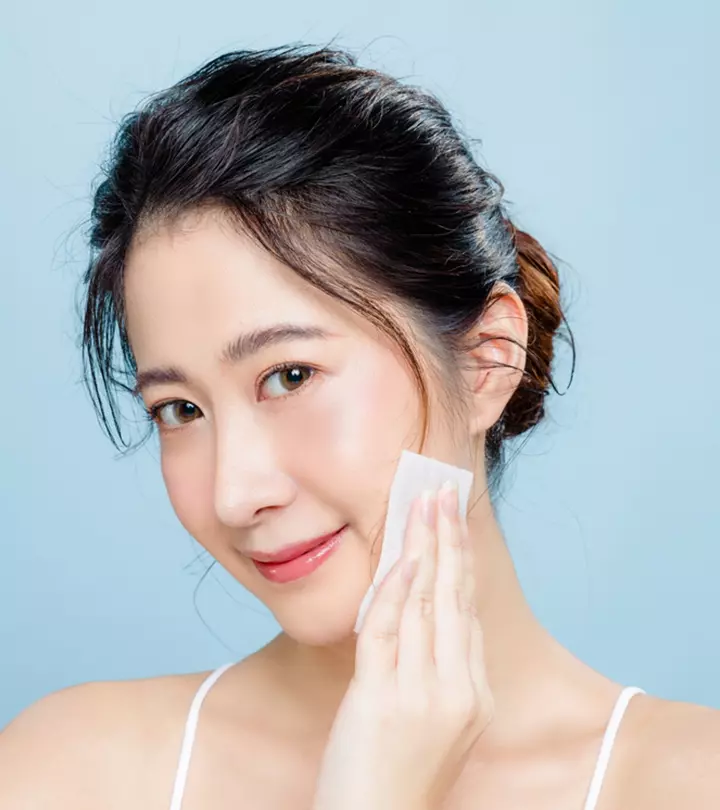
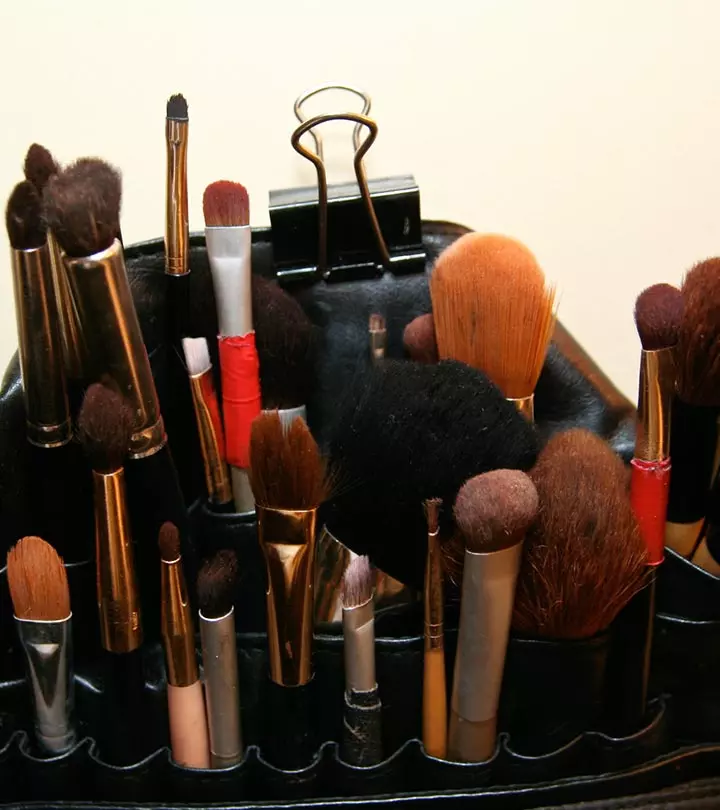
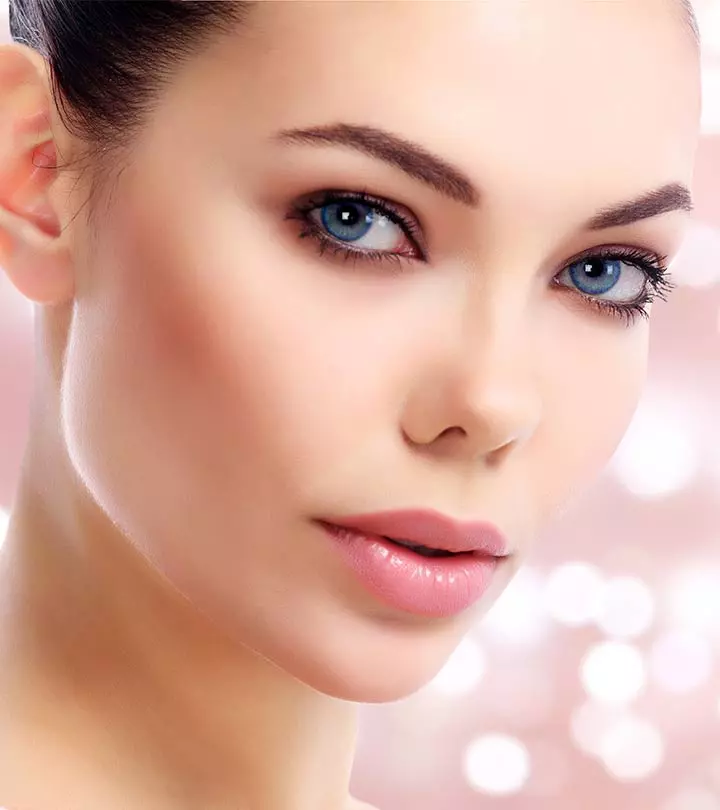
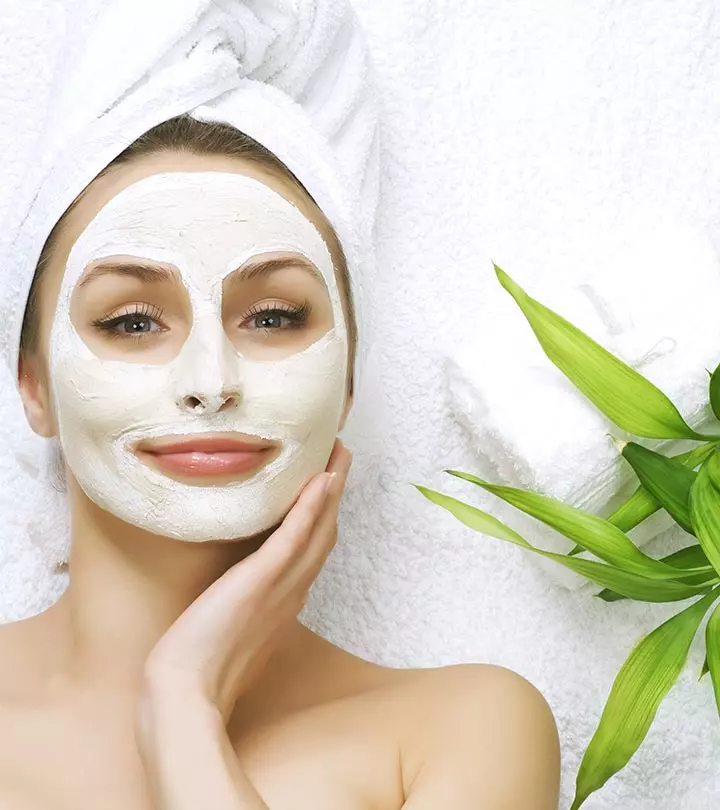
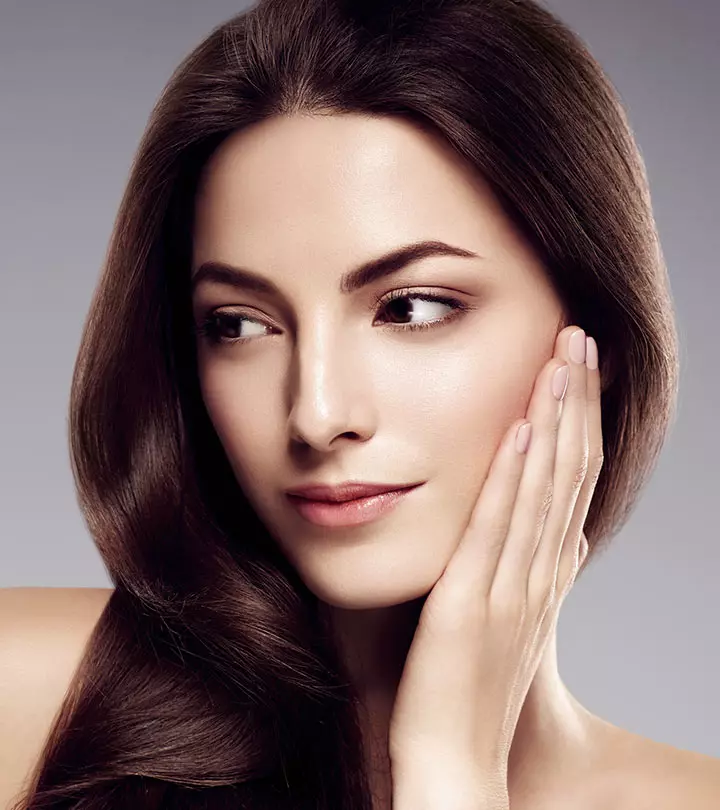
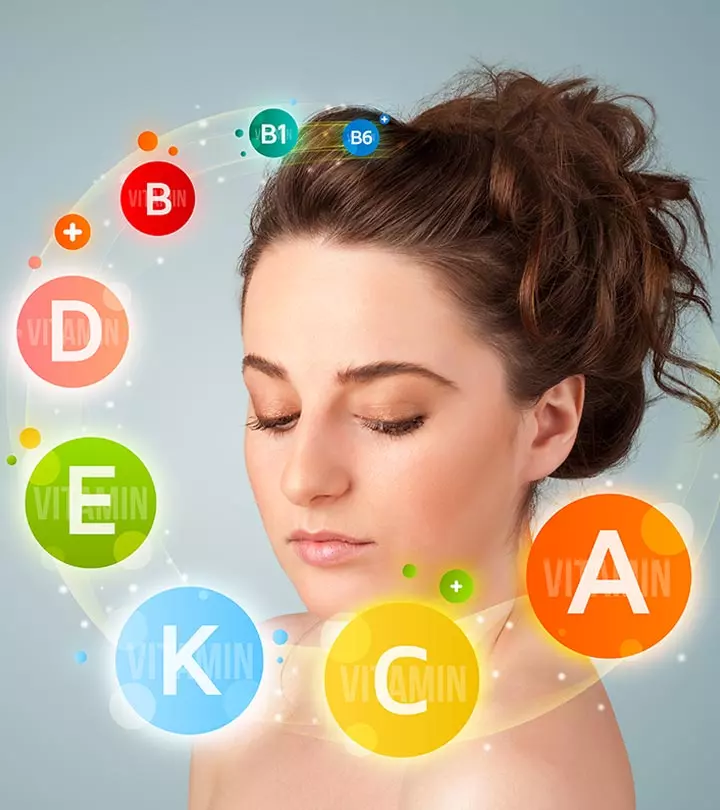
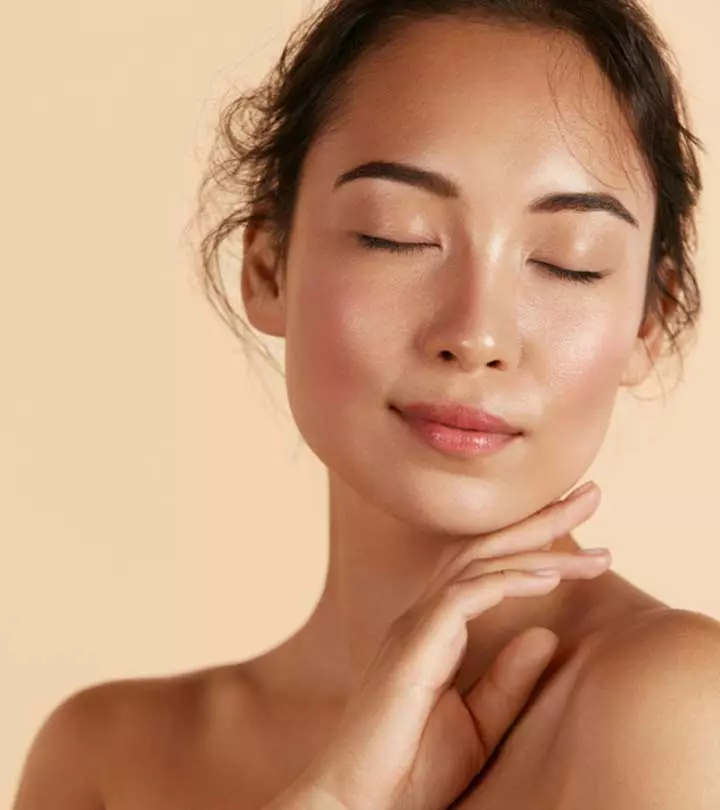

Community Experiences
Join the conversation and become a part of our empowering community! Share your stories, experiences, and insights to connect with other beauty, lifestyle, and health enthusiasts.